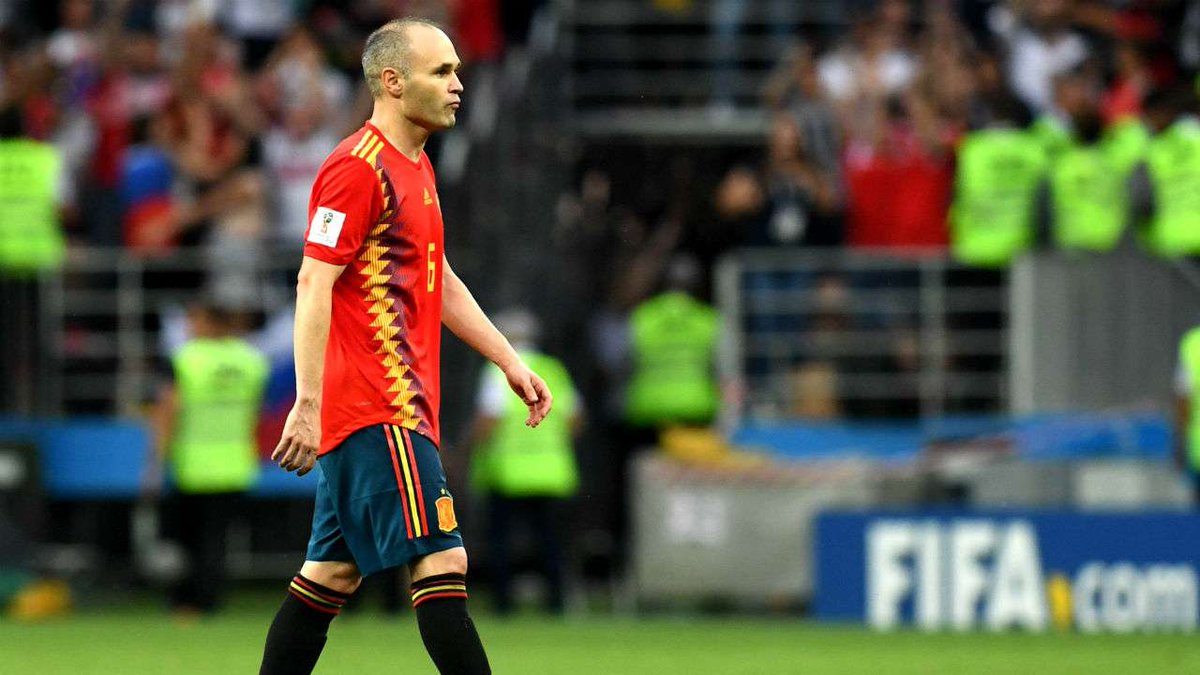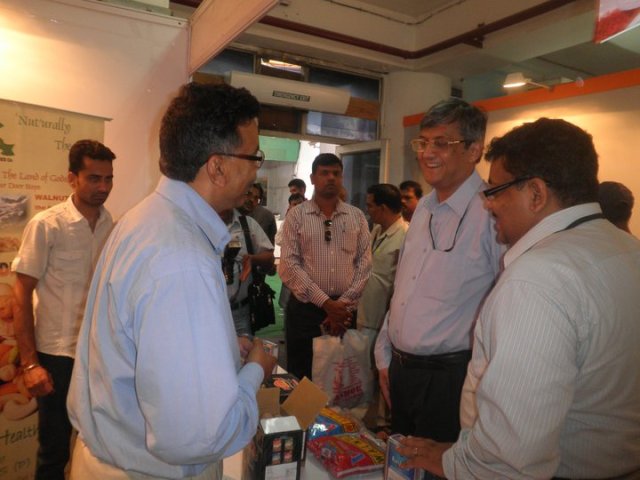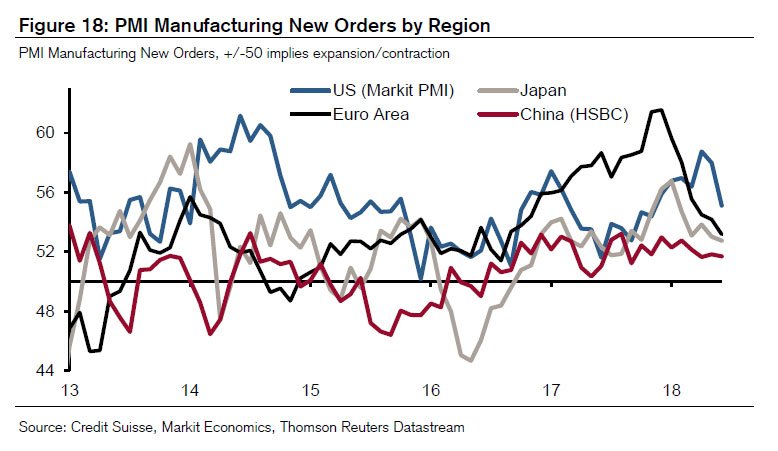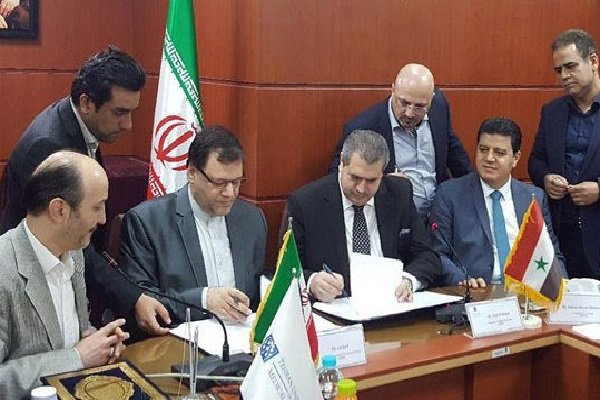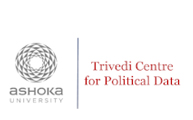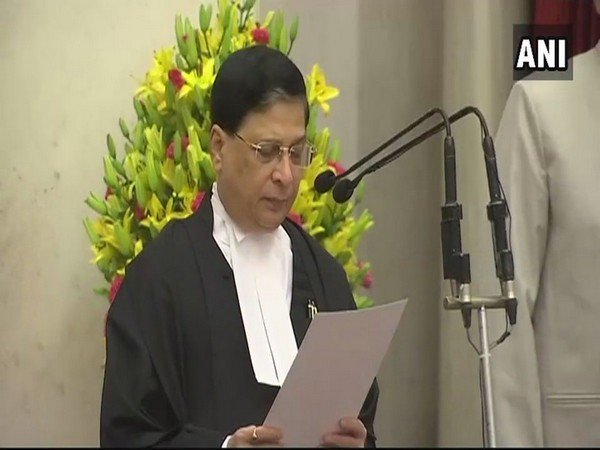I) Political Developments1) Iran: Iranian President Hassan Rouhani has sent a list of demands to France, Germany and Britain as its price for staying in the nuclear accord, while vowing not to give in to growing U.S. pressure to curb its oil sales. Iran has said if it cannot reap any economic benefits from remaining in the deal, which traded sanctions relief for curbing the Iranian nuclear program, then it would have little incentive to comply with its terms and would significantly ramp up uranium enrichment.
The EU has pledged to defend the agreement, protect European companies hurt by the U.S. decision and offer alternative financing for Iranian investments. However, finding practical ways around U.S. sanctions has proved difficult.
Again, in a speech to senior officials broadcast live by state television, Rouhani prepared the Iranian people for difficult times ahead, while affirming they could cope with such problems. He said: “We will not surrender before America, we will protect our historic dignity. We have to show the world that we will tolerate tough times, we will tolerate difficulties, but we will not trade in our independence, our freedom or our faith.”
In comments largely addressing his domestic critics, Rouhani promised his government would cut spending, reduce international travel and fly economy class to ease the burden on the public. He also said his government would import raw materials at affordable prices to help domestic manufacturers and ensure supply for Iranians. Additionally, he urged ministries to issue government bonds to give people alternatives to the dollar and the euro for investing their assets.
One of the few tangible financial gains Iran has seen from the nuclear deal has been an increase in its oil exports. A dramatic reduction could hurt economic growth and deepen a foreign currency shortage that has seen the Rial plunge against the dollar.
There are indications that the Iranian people are already facing difficulties: the central bank of Iran reported on 26 June that consumer prices in June grew at their fastest in three years, to 13.7 percent from a year earlier. Last week, Iran banned import of 1,400 non-essential and luxury goods to reduce the amount of foreign currency leaving the country.
On 27 June, the Trump administration began dismantling the sanctions relief that was granted to Iran under the 2015 nuclear deal. The Treasury Department announced it had revoked licenses that allowed U.S.-controlled foreign firms to export commercial aircraft parts to Iran as well as permitted Americans to trade in Iranian carpets, pistachios and caviar. It said businesses engaged in any such transactions would have to wind down those operations by 6 August or face penalties under U.S. sanctions. Another set of licenses covering other types of commerce, including oil purchases, will be revoked in coming weeks, with firms given until 4 November to end those activities.
Protests in Tehran: On 27 June, hundreds of merchants in the streets of Tehran’s Grand Bazaar shut down their shops, protesting against the sliding currency that, the supporters of President Rouhani believe, are being whipped up by hardliners to push him out of office. When a few dozen protesters chanted anti-government slogans — “The enemy is here. They [the regime] lie that it is the US” — the riot police stood by. Hard-line media outlets have given prominent coverage to the strike.
The government’s emergency measures — allocating hard currency largely to importers of basic commodities and imposing a ban on hundreds of imported goods, including cars — have pushed up prices of many products. Shopping malls, for instance, which are dependent on imported consumer goods including clothes and shoes, were surprised when the import ban was imposed. Many people are also withdrawing savings and buying gold, hard currency, property and cars in an attempt to protect their assets.
The Trump administration used this occasion to express sympathy for the plight of the Iranian people due to the policies of their government; Secretary of State Mike Pompeo said in a statement: “The Iranian government is squandering its citizens’ resources, whether its adventurism in Syria, its support for Hizbollah, Hamas, and the Houthis, or its ambitions for wastefully expanding its nuclear program, it will only add to the suffering of the people of Iran…We condemn the government’s same futile tactics of suppression, imprisonment of protestors, and the denial of Iranians’ frustrations. The people of Iran are tired of the corruption, injustice, and incompetence from their leaders”
2) Yemen (attack on Hodeidah): From 12 June, the Saudi-led military alliance launched its assault on the heavily defended Yemeni Red Sea port city of Hodeidah to weaken the Houthis by cutting off a key supply line for the group, which controls the Yemeni capital Sanaa and most populated areas.
Coalition forces seized the airport on 27 June and have been consolidating their hold in the area as UN efforts continued to reach a political deal that would avert an assault on the port, a lifeline for millions of Yemenis. The United Nations fears the escalation in fighting could exacerbate what is already the world’s most urgent humanitarian crisis, with 22 million Yemenis dependent on aid and an estimated 8.4 million believed to be on the verge of starvation.
Hodeidah is the main port servicing the Houthi-controlled capital, Sanaa, and in successive waves of war that swept across Yemen over the last eight years, the city has been a strategic prize, the gateway to the country’s north. Saudi Arabia and the UAE hope the battle for Hodeidah can break a deadlock in the three-year war.
The World Food Programme said the fighting could result in up to 1.1 million people being either displaced or trapped within the city and in need of emergency food assistance. The International Crisis Group said the battle for Hodeidah was reaching “the point of no return”.
The coalition has pledged a swift military operation to take over the airport and seaport without entering the city centre, to minimize civilian casualties and maintain the flow of goods.
The humanitarian dimension of the Yemen conflict has become politicized. Critics of the Saudi and UAE intervention highlight the dire consequences of the war on areas of the country controlled by Houthi-backed rebels. The Saudi-UAE coalition has been accused of attempting to exploit the outpouring of global concern for Yemen’s starving, disease-ravaged civilians to cloak territorial grabs while downplaying its own sea blockade that has restricted or delayed imports and airstrikes that have caused civilian casualties.
The Houthis have been accused of abusing aid to maintain a tight grip on power over the areas they control by selecting who gives and gets aid. The heads of the relief groups that operate out of Hodeidah have privately acknowledged that the Houthis control the import, storage, transport, and distribution of international aid, using it as a political tool, and when opportune, exploiting the suffering of Yemeni civilians to put pressure on the Saudi-UAE coalition.
Afrah Nasser, a Yemeni journalist, has said she is alarmed by the politicians’ dismissal of civilian concerns. An official in Yemeni President Abdrabbuh Mansur Hadi’s UN-backed government acknowledged the great human price being paid but told Nasser it was all for the greater good of ridding the country of the Houthis. An official of Ansarullah, the organization representing the Houthis, told Nasser of the great honour of dying in battle and the pride they took in making sacrifices in their quest to resist the hegemonic ambitions of the United States and its allies.
UN peace plan: On 9 June, Reuters published details of a draft UN peace plan for Yemen prepared by the UN special envoy, Mark Griffiths. The peace plan calls on the Houthi movement to give up its ballistic missiles in return for an end to a bombing campaign against it by a Saudi-led coalition, and a transitional governance agreement. The document also cites plans to create a transitional government, in which “political components shall be adequately represented,” in an apparent nod to the Houthis, who would be unlikely to cede Sanaa without participation in a future government.
A Houthi official cautiously welcomed the UN effort, describing a ceasefire as the first building block in the political process. “Our optimism will be determined by how serious and respectful the other parties are of the U.N. role,” the official told Reuters, noting that previous truces had failed.
Anwar Gargash, the UAE’s minister of state for foreign affairs, signalled Abu Dhabi’s desire to support Griffith’s efforts. “Politically, there is a necessity to back the U.N. effort. It will ultimately mean a transition, to a new political order in Yemen. Clearly with the U.N. effort, the military and political process will see the Houthis pull out of urban centres,” he said.
3) Turkey (Erdogan wins national elections): In May, President Recep Tayyip Erdogan called for snap elections on 24 June, nearly a year and a half before they were due in November 2019. The proposed elections would take place in a state of emergency, declared in the wake of the attempted coup in July 2016.
Last year, Erdogan had already obtained popular support for major changes in the country’s constitutional set-up which will now be implemented with these elections: the country would now have a presidential rather than a parliamentary system; the strength of the national assembly would increase from 550 to 600, and the voting age would now be 18 years instead of 25 years earlier. Not surprisingly, Erdogan’s critics at home and abroad saw in these changes an attempt by the president to consolidate his authoritarian rule in the country.
Opposition parties made a major effort to present a united front: though there were six presidential candidates, Erdogan’s principal opponent was Muharrem Ince who headed the Republican People’s Party (CHP, in its Turkish acronym) and campaigned on a secular platform. The other candidates were Meral Aksener of the newly setup IYI (Good) party and Selahattin Demirtas of the Kurdish People’s Democratic Party (HDP), who has been in prison since 2016 for backing the Kurdish insurgency.
The opposition campaign consisted of severe criticisms of the president’s dictatorial approach and the promise to return the country to parliamentary rule, end the state of emergency and, in the case of the Kurdish candidate, establish local democracy in place of strong central rule.
In the event, opposition hopes were dashed: in a voter turnout of 87 percent, Erdogan obtained 53 percent of the vote, while Ince got 31 percent. In parliament, Erdogan’s Justice and Development Party (AKP) got 295 seats, just short of a majority. However, his electoral ally, the rightwing Nationalist Action Party (MHP) got 48 seats, giving Erdogan a comfortable majority in parliament. The CHP and Meral’s IYI party got 146 and 43 seats, respectively. The Kurdish party did well to get 67 seats.
Erdogan’s success has been ascribed to his ardent nationalism and his military forays in Syria to confront the expanding territorial gains of the Kurds, while standing up to the Americans who were backing them.
The results have exposed the hostility that sections of the western political establishment and media have for Erdogan personally, projecting him as a hardline Islamist, largely on account of his tough posture towards the European Union (EU), his criticisms of US support for the Kurds in Syria, his overt shift towards Russia and his participation in the Russia-led peace process in Syria with Iran.
Despite dire warnings from some observers, Erdogan is unlikely to be either capricious or dictatorial: his authoritarian instincts will be restrained by his dependence on an ally for majority support, the strong presence of the opposition in parliament, and the clearly asserted democratic values of the Turkish people.
But, there are formidable challenges before the newly elected president. Erdogan, with five years in power ahead of him, will need to urgently address the economy, where the currency has lost its value and inflation and unemployment have dealt serious blows to the very people who see him as “our father” and depend on him for salvation. Turkey is also facing the impact of hosting over three million Syrian refugees.
Erdogan will also need to heal the divisions in his country – mainly between his government and the Kurds. He has for long seen their aspirations for political, economic and cultural space in their country as a security threat, without accepting that perhaps his own highhanded policies could have added to their sense of alienation.
Erdogan enjoys certain advantages as well. Large numbers of Turkish people accept Erdogan’s narrative relating to the “Gulenist conspiracy” that had tried to overthrow him in 2016, with the help of foreign powers. Most Turks are also comfortable with his vision in which Turkey is neither European or Asian but is in the vanguard of shaping a new “Eurasian” identity which would place Turkey more deeply anchored in ties with Russia and China, while maintaining close political and economic ties with the EU.
4) Iraq’s electoral scene in disarray: Developments since the election results were announced in Iraq in May have seriously complicated the political scenario, with government formation still a distant prospect. The electoral triumph of the Sadrist- Iraqi Communist Party (ICP) alliance, which had won the most votes, seems to be breaking up as Muqtada al-Sadr has entered into an alliance with pro-Iran Badr Brigades militia commander Hadi al-Amiri, head of the Fatih bloc. This coming together of two Shia blocs that had till recently been far apart suggests that Iraq’s politics could continue to be defined by sectarian considerations and that Iran’s influence will remain undiluted.
Al-Sadr stressed nationalist considerations as motivating his new alliance and called others to join. The ICP put on a brave face: ICP Secretary Raid Fahmi told broadcaster Al Iraqiya that an al-Sadr-Amiri merger “does not come as a surprise” and welcomed the inclusion of Iran’s strongest militant outfit in the new government. Fahmi advised observers to look beyond the “shape, composition and seat allocations of the new government,” which he promised would bring forward “a political reform programme,” and to focus on “the foundations that the government is built on” as what counts.
Iraqi commentator Ahmad Mahmoud said the militia alliance is a reassertion of the status quo of an Iran-controlled Baghdad-seated government. Ali Khedery, a former adviser to US ambassadors to Baghdad, described on Twitter this outcome as “another strategic victory for Iran’s [Qassem] Soleimani” — commander of al-Quds Force, the overseas wing of Iran’s Islamic Revolutionary Guard Corps. His prediction is that “[America’s] troops will soon be evicted, our embassy crippled. Iran is consolidating its grip across its crescent.”
To further complicate matters and delay government formation, Iraq’s Supreme Court has ruled in favour of a manual recount of May 12 parliamentary elections that had resulted in a shock victory for Shia leader Muqtada al-Sadr. The court found on 21 June that the decision by parliament to order a manual recount in response to allegations of electoral fraud does not violate the constitution.
5) New regional grouping in the Gulf: On June 6, Saudi Arabia and the United Arab Emirates (UAE) announced the formation of the “Saudi-Emirati Coordination Council”, the brainchild of the two countries’ powerful crown princes, Muhammad bin Salman and Mohammed bin Zayed. The Saudi Arab News has said: “The aim of the council is to promote Saudi-Emirati stature on the global stage in a number of areas including the economy, political affairs, human development and security as well as ensuring citizen welfare and happiness.”
The two princes’ vision is known as the “Determination Strategy”, the official Saudi Press Agency stated, giving a five-year deadline to implement the program of no fewer than 44 areas of cooperation, including arms manufacture and military coordination. The last reference has generated concerns in Qatar and the US that the two countries might be planning a military assault on Qatar.
US commentator Simon Henderson believes that the council is “probably the death knell of the Gulf Cooperation Council (GCC)”. He points out that despite several internal differences the GCC members had been able to successfully meet the challenge posed by the Iranian revolution and protect Kuwait’s interests after the Iraqi occupation of 1990. But, the GCC has been under strain because of the year-long Gulf confrontation between Qatar and its neighbours, Saudi Arabia, the UAE and Bahrain, along with Egypt.
